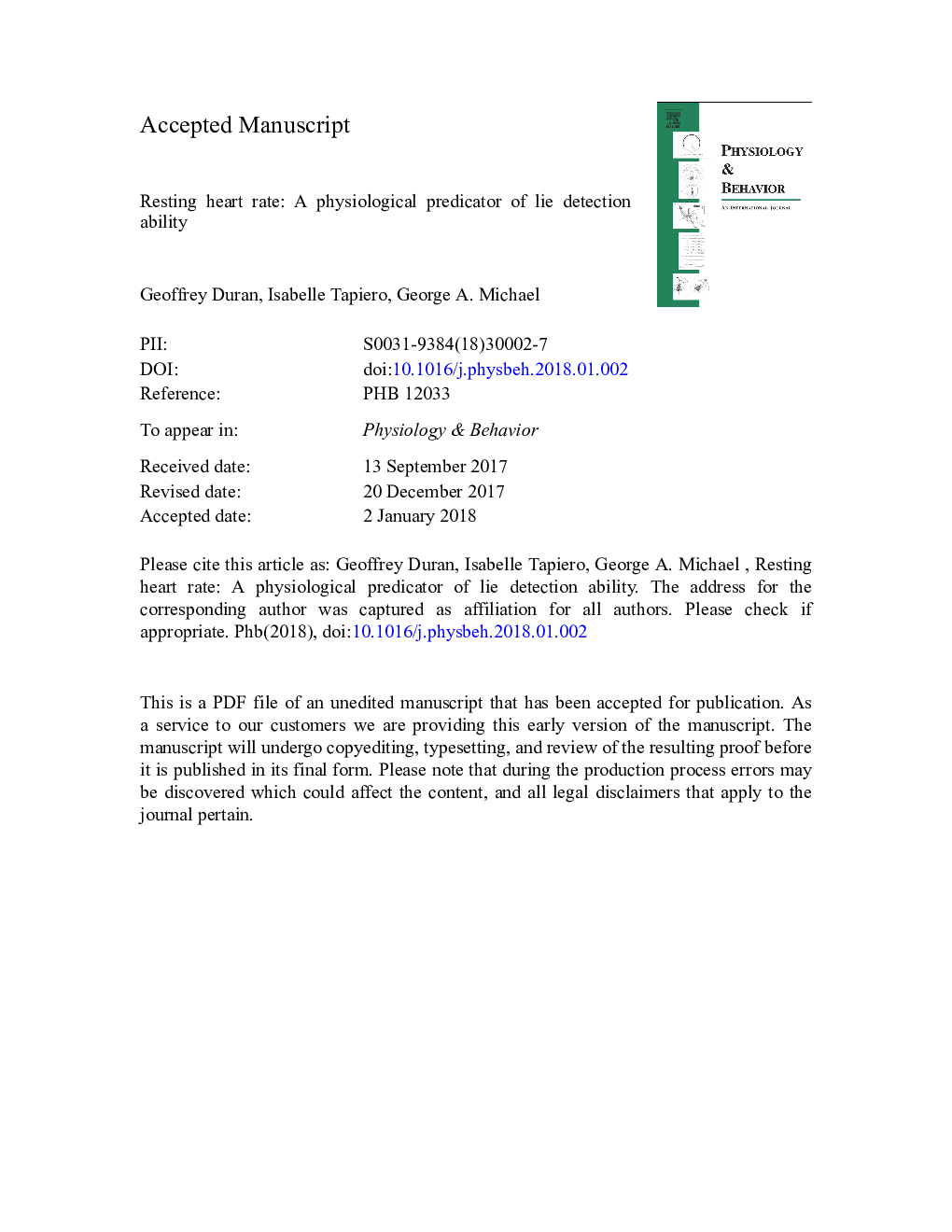| Article ID | Journal | Published Year | Pages | File Type |
|---|---|---|---|---|
| 8650632 | Physiology & Behavior | 2018 | 25 Pages |
Abstract
This study explored a psychophysiological measure, Resting Heart Rate (RHR), as a predicator of the ability to detect lies. RHR was recorded for 1Â min and followed by a deception detection task in which participants were required to judge 24 videos of people describing a real-life event (50% truthful, 50% deceptive). Multiple regression analyses showed that, among other individual characteristics, only RHR predicted the ability to distinguish truth from lies. Importantly, the prediction was negative. This result suggests that the higher the RHR, the worse the detection of lies. Since the RHR is considered to be a physiological trait indexing autonomous arousal, and since high-arousal states can lead to restricted attentional resources, we suggest that limited selection and utilization of cues due to restricted attention is the reason why higher RHR leads to poor deception detection.
Related Topics
Life Sciences
Biochemistry, Genetics and Molecular Biology
Physiology
Authors
Geoffrey Duran, Isabelle Tapiero, George A. Michael,
